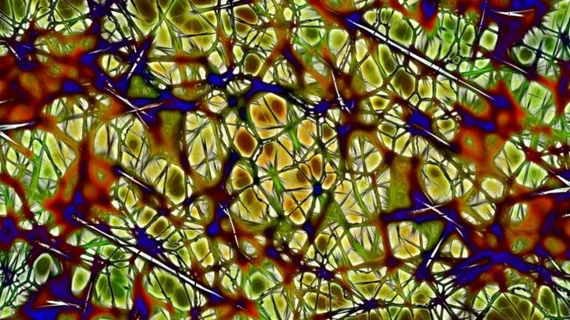Researchers ID new protein tied to cognitive decline
Researchers used in vivo, two-photon imaging to identify a blood-clotting protein responsible for destroying the synapses in the brain—a precursor to cognitive decline, according to a Feb. 5 study published in Neuron.
The team, led by Katerina Akassoglou, PhD, of the Gladstone Institute of Neurological Disease in San Francisco, believes it could change how scientists approach some of the worst symptoms of Alzheimer’s disease.
“We found that blood leaks in the brain can cause elimination of neuronal connections that are important for memory functions,” said Akassoglou, who is also a professor of neurology at UC San Francisco (UCSF), in a release. “This could change the way we think about the cause and possible cure of cognitive decline in Alzheimer’s disease and other neurological diseases.”
Akassoglou and colleagues studied the brains of humans and mice with Alzheimer’s and determined when fibrinogen leaks from the blood into the brain it triggers the organ’s immune cells to destroy vital connections between neurons. These synapses are needed for neurons to communicate, and when destroyed, can cause the memory loss seen in Alzheimer’s and other neurological diseases.
The authors also showed fibrinogen can cause the same damage in healthy brains as that seen in brains with amyloid plaques—thought to be a hallmark of Alzheimer’s and the focus of failed clinical trials.
“These exciting findings greatly advance our understanding of the contributions that vascular pathology and brain inflammation make to the progression of Alzheimer’s disease,” said Lennart Mucke, MD, director of the Gladstone Institute of Neurological Disease, in the same release. “The mechanisms our study identified may also be at work in a range of other diseases that combine leaks in the blood-brain barrier with neurological decline, including multiple sclerosis, traumatic brain injury, and chronic traumatic encephalopathy. It has far-reaching therapeutic implications.”

